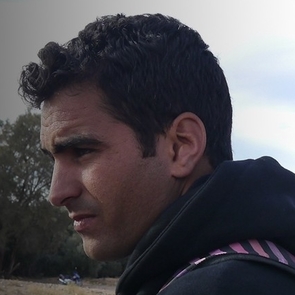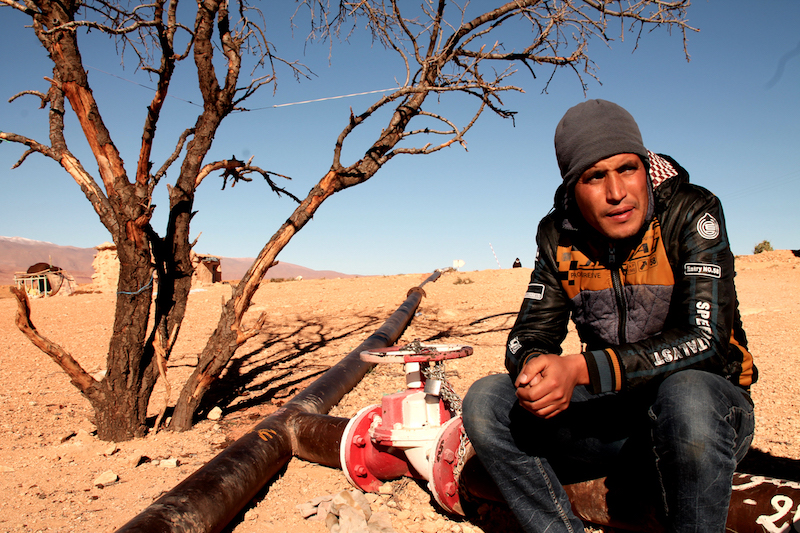
Moha Tawja
Mohamed Ed-Daoudy (better known as Moha Tawja), an indigenous rights defender from Imider, is featured in Front Line Defenders 2016 campaign calling for the protection of indigenous rights defenders.
If we had independent studies that can prove the effect of the mine on Imider, I don’t think we would need to protest.
Mohamed Ed-Daoudy (better known as Moha Tawja) is an indigenous rights defender from Imider, a remote village in south west Morocco. Most people in Imider are Amazighs (Berbers), an ethnic group that since Morocco’s independence has been struggling for the recognition of their social and cultural rights. Moha is one of the leading members of “Movement on the Road ‘96”, a social movement against a silver mine owned by the Moroccan royal family that was draining the water reserve of Imider. In 2011, Moha and the other Imider residents set up a protest camp around a key water valve, to prevent the mine from decimating their water supply. Since the beginning of the protest, they have suffered threats, intimidations, arbitrary arrests and lawsuits brought by the mining company. Dozens of people have been arrested, and families of human rights defenders have been threatened in an attempt to stop the movement.

